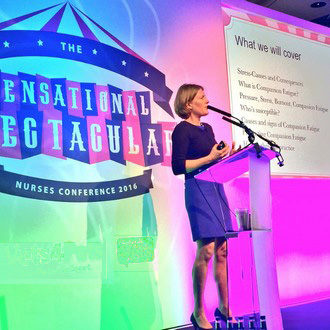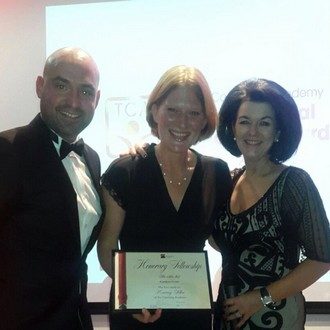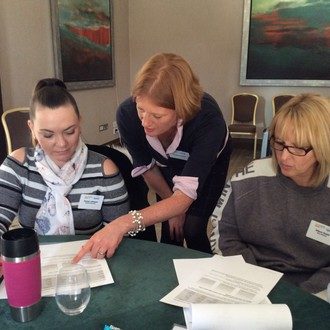Confidence is important for every one of us. It affects everything we do and the amount of pleasure we have when doing things.
It’s very easy to look at others and think how confident they look, how in control they are and you may be thinking perhaps if only I could be like that. It’s good to remember that no one is confident about everything all the time. Confidence is a constantly evolving state of being. We might feel amazingly confident in one aspect of our lives but have a crippling fear in another.
Lack of confidence affects every one of us at some point. It may be in your professional work, with your interpersonal skills or in your personal life.
And if you do lack confidence, it’s also important to know that there are lots of things that you can do to work towards boosting it. Confidence is not something we are born with, it is shaped by experiences from childhood to adulthood.
No one can give you confidence, it comes from within. However, there are techniques you can use to develop your confidence.
Confidence is twofold, both the confidence you have in your own abilities in performing a task or being in a particular situation (self-confidence) and the trust that others have in your abilities, your plans and your future (confidence in others).
That’s why it is so important to develop ways to build not only your self-confidence, but also working on the confidence that you instil in others. Both of these are vital for a successful and rewarding career, as well as in positively shaping your life outside work.
I coach many professional people on their confidence and how it is affecting their daily lives and often how it is holding them back from doing what they want to do. If this is the same for you or a member of your team, then do get in touch and I can help you take the steps to gain confidence and the ability to do what you want in your life and your career.
In the meantime, here are some steps to boost your confidence.
1. Become more aware
Your level of self confidence can show in many ways; your behaviour, your body language, your words, your actions (or what it is preventing you from doing). Firstly, you need to raise your awareness to how confident you are in certain situations by recognising the difference in behaviour between someone who is confident and someone who lacks confidence.
Low self-confidence can be destructive and it often manifests itself negatively.
2. Identify the cause of your lack of confidence
If you recognise some of the behavioural signs of low self-confidence, write down in which particular situations you experience them. Ask yourself what you are doing when you have these thoughts and who else is around. Be very specific as this will enable you to get to the root of what is making your confidence drop and importantly where you need to start to build it back up.
3. Understand yourself better to gain confidence in your approach
Consider completing your own DISC behavioural profile to quickly and effectively gain a deep understanding of yourself, enabling you to better understand your own strengths, the qualities you bring to your work as well as to the team you work with and knowledge of the best way of working for you, as well as gaining skills and understanding in how to communicate with others more effectively and therefore the confidence to get the best out of yourself and the people you live and work with.
4. Set some goals
Using the knowledge gained through DISC profiling you can then set some goals. Ask yourself, what does being more confident in this area look like? Identify it and write it down. When do you want to achieve it by? How will you know when you have got there?
5. Enter the Confidence-Competence loop and start building your confidence
Now we have identified where we are heading and what being more confident looks like, we can then make a plan of action to achieve that specific goal and practise all the skills required to succeed.
6. Feedback
Asking for feedback and then digesting and learning from that feedback allows us to become more competent, which in turn develops confidence in that particular area.
This process is called the Confidence–Competence loop, and it can be applied to all areas of our lives and careers.
I love this quote from Don King “Confidence comes not from knowing you know everything, but from knowing you can handle what comes up.” He clearly understands that confidence is entirely driven from within, by your own self-belief. You have control over your life; there are choices that are right for you, so identify them and take the first steps to making them.
Confidence is vitally important – when it is lacking it affects who we are and what we do, it impacts on our wellbeing and our health. How confident we appear to our clients will also influence how effective we are in our professional lives, shaping how much they trust us, how engaged they are and ultimately determining how easy our daily working lives are. Fundamentally, when we are confident, our time at work and at home becomes more effective, enjoyable, productive and profitable.
If it all seems a little daunting or you want to know how you can become that calm and confident person, my online personal development programme MyLifeStrategy can help you to overcome the personal and professional challenges you face on a daily basis and learn practical skills and techniques to make a real difference to you and your life.
In the Develop Your Confidence module, you’ll explore what makes confident people confident and look at ways to change your behaviour and create the building blocks for a more confident you.










